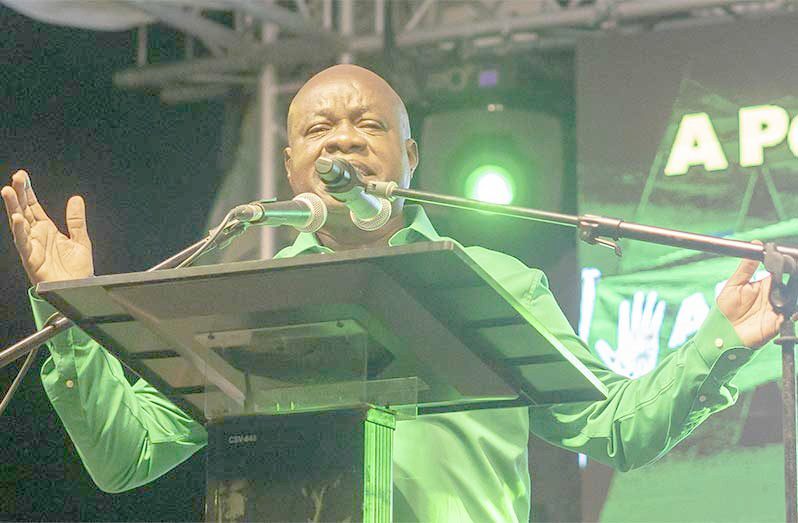THE A Partnership for National Unity (APNU)’s presidential candidate, Aubrey Norton, has said that the local private sector is too dependent on government spending.
Norton made these remarks during his party’s launch of their manifesto at the Pegasus Corporate Business Centre in Georgetown, on Friday.
The Opposition Leader cited figures that public spending rose from 39 per cent in 2021 to 83 per cent of non-oil GDP in 2024, and he questioned the private sector’s resilience in a non-oil economy.
“When we examine what the current government was doing, we saw the extent to which its spending diminished the role of the private sector as the engine of growth,” he remarked.
He also said that the increase in public spending calls into question the preparedness of the private sector to respond to exogenous shocks to the economy.
Norton further supported APNU candidate attorney-at-law Dexter Todd’s sentiments that it is the private sector’s fault that the APNU+AFC administration failed to deliver on most of its promises while in office from 2015-2020 and implemented draconian taxes.
On the sidelines of the manifesto launch, Norton was asked about Todd’s justification for the coalition failing to deliver on its promises.
“I will endorse that. Todd is making a point…I support what Todd would have said,” Norton said.
Norton was further questioned on how his party, if elected, plans on engaging with the private sector and said: “We will engage the private sector as mature people, we will raise with them the issues we think need to be raised, we will listen to their concern and we will work out an approach with them…Because you disagree with somebody, it doesn’t follow that there is tension.”
Norton had once again stated that “the private sector has to get most of its business from government” and committed to changing this.
Todd during a public meeting told the small crowd that the APNU+AFC was undermined by the business community since those who “own the businesses and have the economic power” were not aligned with the APNU+AFC.
“When Granger took over under the APNU+AFC in 2015, it was easy for them to set the stage for David Granger and the APNU+AFC to fail,” he said.
Todd further stated: “They shut down the economic activities in this country. So, the only thing that remained was taxes to run this country. And that is why when you see that the APNU… wanted to give public servants more and you wanted to do more in terms of infrastructure. One of the things that you had to go back to was to see if you could get a little more tax money.”
The previous APNU+AFC administration, however, has faced much criticism for its performance in office, especially for the stagnation of the local economy.
The APNU+AFC implemented over 300 taxes and fees, including: 14 per cent Value Added Tax (VAT) on electricity and water, mobile internet, and private health and education services, which sparked widespread disgruntlement from business owners and consumers alike. The fees for small operators and businesses, including cart operators, were also raised significantly.
Further, the private sector frequently accused the APNU+AFC of creating significant barriers to investment through heavy taxation and bureaucratic inefficiencies.
Norton says private sector too dependent on gov’t spending
SHARE THIS ARTICLE :
Facebook
Twitter
WhatsApp



.jpg)








